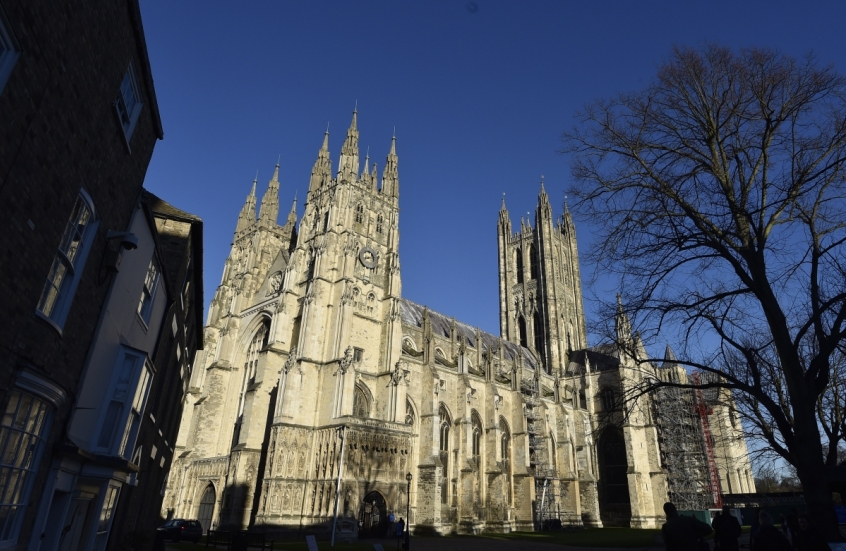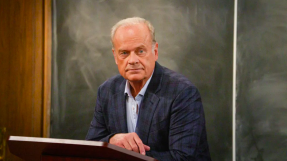The news that three major conservative Anglican evangelical groups are seeking to come together has been greeted with varying reactions.
Many people have responded very positively. They see the move as a way of furthering gospel unity, pooling resources effectively and bringing together three organisations with frankly miniscule differentials (Church Society, Reform and the Fellowship of Word and Spirit).
Others are struggling to come to terms with the idea at this stage. They are raising thoughtful concerns which the leadership teams of the three groups will no doubt address. Still other have reacted with wearily predictable kneejerk negativity.

Unity among Protestant evangelicals has always been a challenge. There are various possible reasons for this: one is the lack of a central, Roman Catholic-style church authority. Another is evangelicals' commitment to combating error, which can sometimes warp into a default attitude of suspicion. This latter problem is memorably satirised in the American novel 'Lake Wobegon Days' which describes how the 18th century Brethren Christians 'having tasted the pleasure of being Correct and defending True Doctrine, kept right on and broke up at every opportunity, until... there were dozens of tiny Brethren groups, none of which were speaking to any of the others'.
So here are six quotes from evangelical leaders in varying centuries who have had to wrestle with this issue. How could their wisdom help Anglican evangelicals today as they contemplate this coming together?
1. Richard Baxter, author of 'The Reformed Pastor' (1615-1691): 'We must be very studious of union and communion among ourselves, and of the unity and peace of the churches that we oversee. Ministers must not only hearken to motions for unity, but propound them and prosecute them; not only entertain an offered peace, but even follow it when it flieth from them... Instead of quarrelling with our brethren, we must combine against the common adversaries... Had the ministers of the gospel been men of peace, and of catholic, rather than factious spirits, the Church of Christ had not been in the case it now is.'
2. Thomas Goodwin, Puritan (1600-1680): 'I never yet took up party religion in the lump... I have found Gospel holiness where you would little think it to be, and so likewise truth.'
3. DL Moody, evangelist (1837-1899): 'Talk not...of this party and that party, but solely and exclusively of the great comprehensive cause of Jesus Christ.'
4. John Stott, Anglican evangelical leader (1921-2011): 'We fragment over what we regard as issues of principle – but often the real reason is personal, isn't it? When we're afraid, we withdraw into our own fellowships and ghettos where we feel secure with like-minded people... It's a very distressing thing about evangelicalism – we are not very good at responsible domestic debate.'
5. George Verwer, founder of Operation Mobilisation, writing in 1969: 'All shall know that you are my disciples if you have love one with another, said Jesus. Is this the way the rest of the world looks at the Christian church? Or do they merely see divisions and intolerance, criticism and narrow-mindedness? Now the Bible teaches us that the way to God is a narrow road. And yet we do not have the right to try to make it narrower than it really is, by excluding everybody who does not think and believe exactly as we do... If you take the whole of the Word of God, and let one verse balance out another verse, then I believe you will end up in the land of the open-hearted.'
6. Bishop Michael Baughen, writing in 1995: 'There is a real need for evangelicals of different emphases or groupings to come together... It does not happen enough in our day.'
The majority of Anglican evangelicals involved with the three groups in the current announcement are likely to support this coming together. Some with legitimate questions will hopefully have them answered in due course. Others, who have a more naturally Eeyore-type outlook may want to ponder Jesus' words about 'a house divided' (Mark 3:25) and to ask themselves who will laugh the most at any ongoing discord.
If you are a communist in the UK at the moment you can choose between seven parties all with the word 'Communist' in the title (and that's excluding Trotskyist, Maoist and other similar groupings). Each presumably has its own marginally different emphasis. But Anglican evangelicals – as followers of Jesus – can surely do better than that. Right?
David Baker is a former daily newspaper journalist now working as an Anglican minister in Sussex, England. Follow him on Twitter @Baker_David_A













